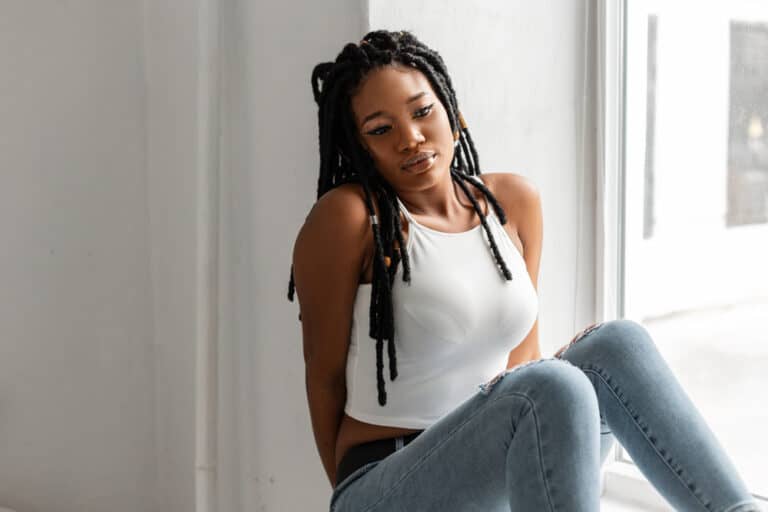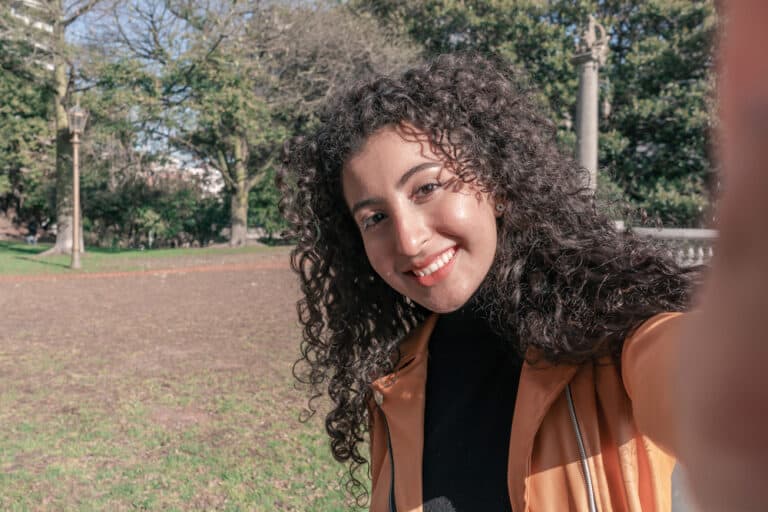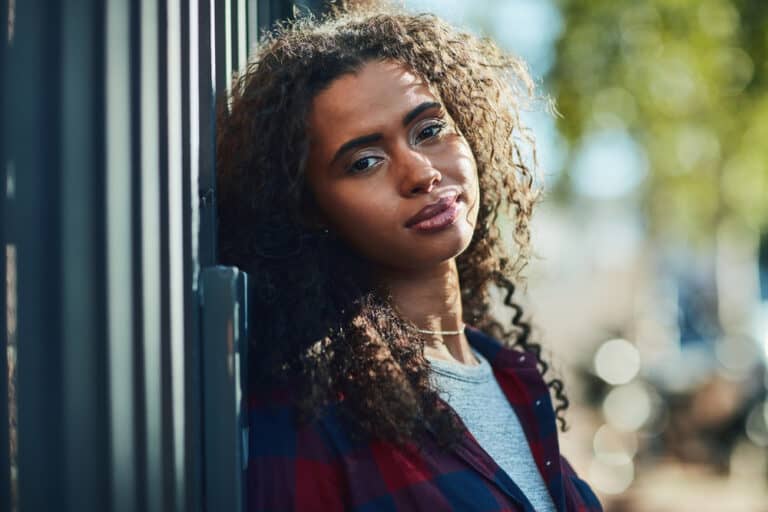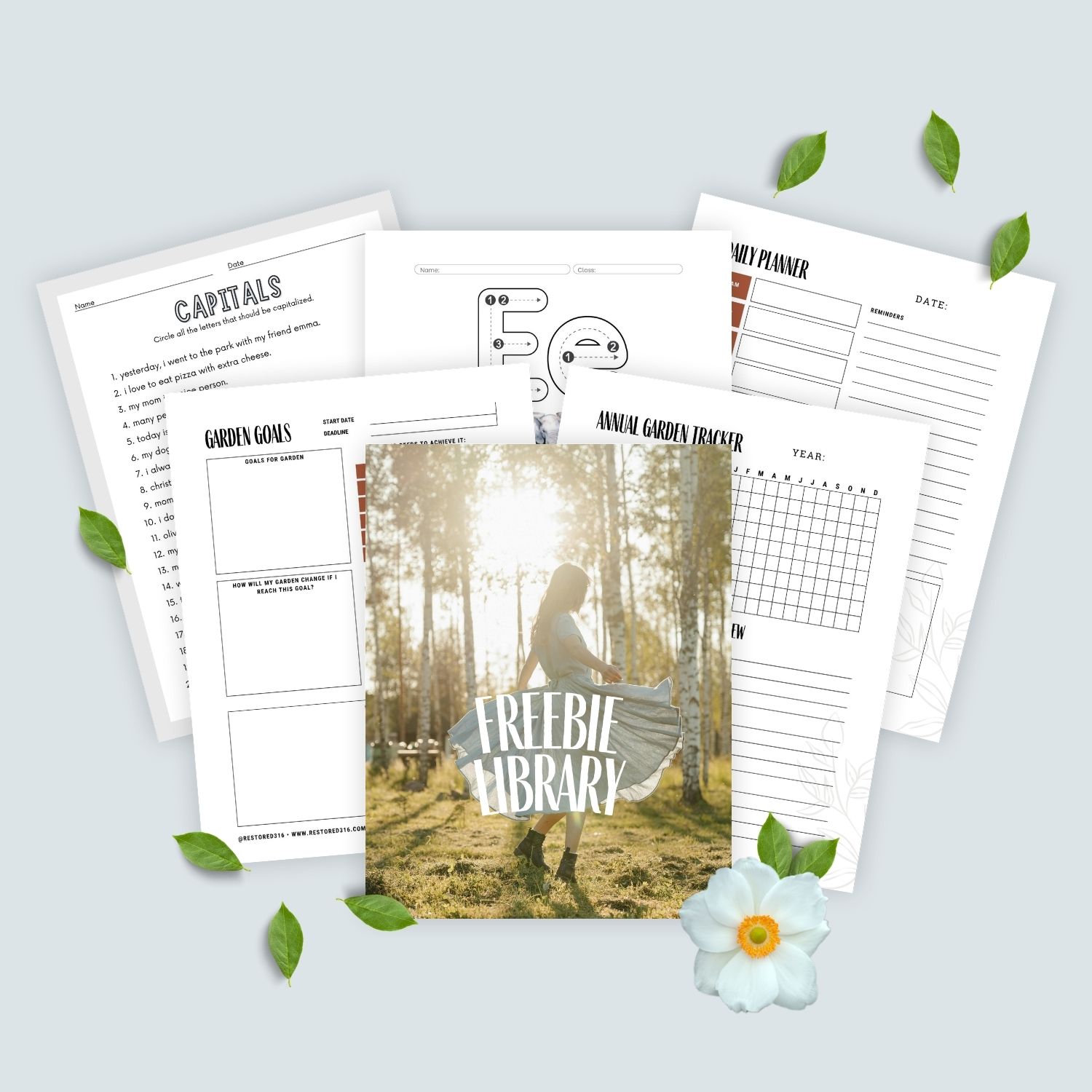The Best Natural Hair Dictionary Online!

We thought it would be beneficial to create a list of commonly used hair terms (i.e., a natural hair dictionary). We recommend bookmarking this natural hair dictionary for future reference and convenience because we constantly make updates to this dictionary by adding additional terms, pictures, videos, and more detailed definitions.
If you know exactly which natural hair term you’re looking for, you can use our alphabetical navigation. Simply click on the letter that the term begins with, and you will be taken to the group of hair terms that begin with that letter.
A | B | C | D | E | F | G | H | I | J | K | L | M | N | O | P | Q | R | S | T | U | V | W | X | Y | Z
This natural hair dictionary is focused on providing a brief definition of commonly used natural hair terms.
Accordion Method – This is a technique where you use a squeezing motion to scrunch the product into the tresses of the hair to encourage body and natural waves.
Accordion Technique – Scrunching product into the hair as if playing the accordion.
ACV – Apple Cider Vinegar. This is used as a rinse to close hair follicles. Some people also use apple cider vinegar to remove gum from their hair.
Afro – This is a very popular natural hairstyle, often referred to as a “fro”, typically requires picking the hair into a rounded shape around the head.
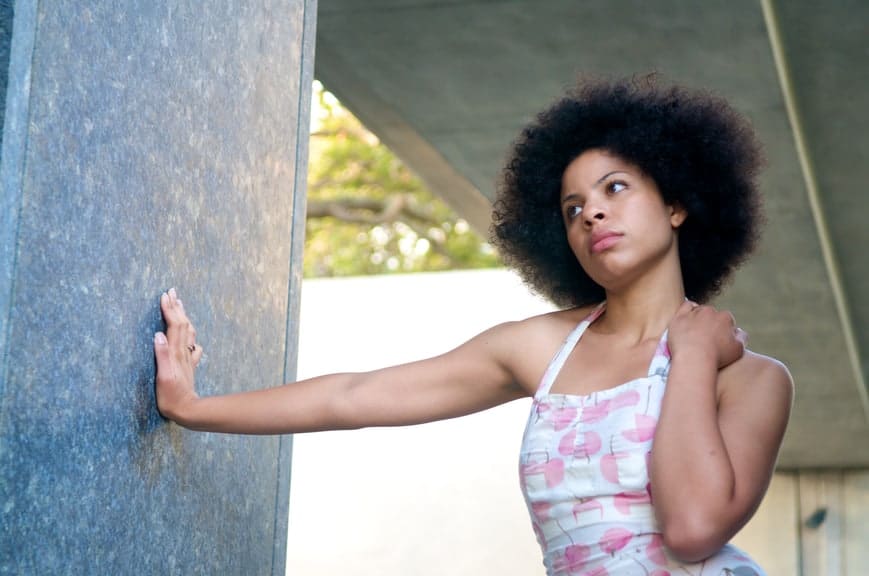
Alopecia – The term alopecia used alone refers to abnormal hair loss.
Alopecia Areata – This is an autoimmune disorder where an individual’s immune system attacks their affected hair follicles.
Alopecia Totalis – A condition where scalp hair is completely lost.
Alopecia Universalis – A condition where body hair is completely lost.
ALS – Ammonium Lauryl Sulfate or Ammonium Laureth Sulfate. These are lathering agents in shampoo that can contribute to hair damage and hair loss.
AO – Aubrey Organics is a hair product brand.
AOHR – Aubrey Organics Honeysuckle Rose Conditioner
APL – Arm Pit Length. This is a way of describing the length of a person’s hair. If a strand of hair can be stretched out to reach an armpit, it qualifies as APL.
AVG – Aloe Vera Gel. Comes from the aloe vera plant. Aloe vera gel has a thickish consistency that is great for DIY products. It is used as a moisturizer for natural hair and can be used to balance the pH level in products.
BAA – Big Ass Afro or Bad Ass Afro
Baggy Job or Baggying – This is a method of soaking the hair with a moisturizer or conditioner and covering the hair with a plastic bag, shower cap, Saran Wrap, or even a simple plastic shopping bag secured by a head tie, elastic band, or do-it-yourself (DIY) headband for several hours. Ideally, the head and all hair should be covered overnight. Baggying can also be applied to just the ends of the hair. Generally, if the ends or full head are bagged, a wig or bun piece is worn to keep the bag from showing.
Balancing Shampoo – Balancing shampoo is great for removing the oiliness without drying the hair.
BC – Big Chop or Big Cut. It means cutting off all the relaxed hair; regardless of the amount of new growth. To learn more about big chopping, check out the top 5 benefits of the big chop.
BM – Brick and Mortar is a physical store location.
BNC – Braid–n–Curl. The hair is braided to get a pleasant kink in it and then the ends are set with rollers or rods to add a curl. Often this is done on the hair wet and then unbraided in the morning.
Breakage – This is when the hair breaks–off without being completely intact. The white bulb which should accompany the hair is not present. This is oftentimes caused by hair that is dry and brittle or roughly handled. Generally, hair that has breakage needs moisture.
Braid Out – Braids that have been left on overnight or a few days that are gently unbraided so as to not disturb the natural kinky nature of the hair. The result is a crimped-looking hairstyle. Fluff and style as desired. A great tip to reduce frizz is not over-manipulate the style and to add a light oil to your fingertips as you unravel the style.
BSL – Bra Strap Length hair. BSL hair reaches the bra strap in the back when the strands are pulled straight down. Because every bra does not wear the same, some naturals also use the acronym BSB, which stands for Below Shoulder Blade.
BSB – Below Shoulder Blade. BSB hair reaches just below the shoulder blade when pulled straight. This is more of a consistent measure for hair growth than BSL because it never moves.
BSS – Beauty Supply Shop or Beauty Supply Store. This is an offline or online place where styling products and tools can be bought.
Carol’s Daughter Hair Products – The Carol’s Daughter line of products contains something for everyone for all types of hair. Even those with locs, twists, braids, relaxed, color-treated, and natural hair can use these products. The products are all scented with fresh fragrances derived from the natural ingredients in the products.
Carol’s Daughter products have been in production for over 20 years. The company has a strong commitment to bringing out the beauty of your hair using natural and rare ingredients. There are many products available, including hair care, body and bath, and skincare products.
The Carol’s Daughter line of natural hair care products includes products for everyone in every step of their hair journey. Users of the products can be assured of no parabens, petroleum, mineral oil, or artificial colors which can damage hair or cause sensitivity.
For those with dry, dull hair there are products like the Black Vanilla line of products. Black Vanilla treats the senses with the fragrance of vanilla and coconut while moisturizing and making the hair super shiny.
Damaged, weak hair can be treated to the Monoi line of products which reduce breakage and restore hair integrity. Monoi oil is an extract of the Tahitian Gardenia and has been used by French Polynesians for years for hair and skin conditioning. Monoi is a great line to use for those who are transitioning from chemically processed hair to natural hair.
The Monoi hair mask is a treatment to be used 1-2 times per week as needed to repair damaged hair. The product is deeply conditioning, and helps to seal damaged ends to make your hair beautiful.
The Macadamia line of products will help tame thick, coarse hair by reducing frizz and providing plenty of hydration. The Chocolat line includes pure cacao for those with frizzy unruly hair. The Macadamia and Chocolat lines are wonderful for those who straighten their hair. They are designed to make the straightening process easier and less damaging to the hair structure. Moisture is infused to keep hair healthy.
Hair Milk is made for those with wavy and naturally curly hair. The line is ultra-nourishing and helps tame unruly curls and frizz.
The company provides a Rosemary Mint clarifying line. Clarifying products help purify hair by removing excess oil and products from the hair. This is a great product to use when coming from using more harmful products. Rosemary is also a great scalp stimulator and will encourage healthy hair growth.
Tui products contain ingredients such as aloe leaf juice, which is soothing to the scalp and hair. Pro-vitamin B5 works as a humectant to hold moisture into the hair. Wheat proteins strengthen hair. The product is great for everyone who needs a little extra boost in hair manageability.
All products are committed to making high-quality hair, body, and skin products at an affordable price. The products are available online and in stores such as Macy’s and Sephora. All lines contain a complete set of products, including shampoos, conditioners, treatments, and styling aids. Most retailers that carry the products carry samples, so you can try the products before investing in a product.
Carrier Oil – These are also known as base oils. They are used to dilute pure essential oils (like rosemary oil) that, when used on their own, might irritate or burn the scalp or skin. Common carrier oils are olive, grape seed, and vitamin E oil. The oil can be a mix or it can be a single vegetable oil.
CBL – Collar Bone Length Hair. This describes hair strands that, when stretched, touch your collarbone.
Chunky Fro – A chunky fro is a hairstyle where the hair is set in a twist style, then unraveled. The goal is to have the unraveled twist show texture and stand up/out. It is not your average rounded afro, as the hair resembles chunks.
Clarifying Shampoo – Clarifying shampoo is a type of shampoo that is used to remove product build-up from the scalp and hair. Because clarifying shampoos strip the hair of moisture and oil, it typically should not be used often. However, if you use a lot of styling products, you may find the need to clarify more often than those who use fewer products or natural products that cause less build-up on the hair strands. We recommend that you clarify before introducing new products to your regimen. Again, a common use of clarifying shampoos is to remove product build-up because they’re designed to provide a deep cleaning. Clarifying shampoos are manufactured with a higher surfactant-to-water ratio than moisturizing shampoos.
CLH – Classic Length Hair. This is a desirable length that is achieved once the hair, when stretched, reaches the point where your thighs meet your buttocks.
Cones – Cones or silicones are ingredients included in hair products that help smooth, protect and shine the hair. However, they also can weaken the hair shaft. Sulfates are needed to remove cones from the hair strand as they act as a barrier that blocks moisture out.
Co-Wash – Co-washing is the act of washing your hair with conditioner only so that it is not stripped of its natural oils. It is often done on dry, damaged hair. This method can be used daily and is often referred to as conditioner wash.
CW – Conditioner Wash. This means skipping the shampoo and washing with conditioner. Also referred to as co-wash.
CWC – Conditioner, Wash, Conditioner. Hair is pretreated with conditioner before shampooing, so it loses less moisture. It is then conditioned again after washing.
Cornrows – The hair is intertwined closely to the scalp using braiding techniques that may involve three or more sections of hair.
Cottony Hair – This frizzy hair type has a dull sheen. When tied taut in braids, it can develop a glossy shine. An identifying characteristic of this type of hair is that it may take several soakings to get it completely wet because it absorbs water rapidly. This characteristic is part of the LOIS hair typing system.
CON – Creme of Nature is a hair product brand.
CG – Curly Girl Method (CG). This describes Lorraine Massey’s regimen of avoiding cone-laden shampoo and only using conditioner to wash your hair.
Curl Clumping: Curl clumping is a styling technique that enhances the natural curl pattern. It involves applying styling products and techniques that encourage individual curls to group, forming well-defined, frizz-free ringlets. This technique can reduce volume for a more defined, sleek look.
Curliness Classifications
Basic definitions of curl classifications are provided below. For more detailed information, check out our hair typing guide.
- Straight – stick straight (1a), straight with a light wave (1b), and straight with visible S-shaped waves (1c)
- Wavy – loose and long S-shaped waves (2a), shorter, more distinct S-shaped waves (2b), and distinct S waves with occasional spirals (2c)
- Big Curly – large and loose spiral curls (3a), bouncing ringlets (3b), and wrapped corkscrews (3c)
- Small Curly – coils of S-shaped curls (4a), bending Z–patterns (4b)
DC – Deep Conditioning. Hair is saturated with a deep conditioning product that is specially formulated for deep conditioning treatments and left on the hair for a specified time per the directions. We recommend following the manufacturer’s instructions for best results.
DIY – Do It Yourself.
DT – Deep treatment. See deep conditioning definition.
Depilatory – Hair remover products and relaxers commonly contain sodium and calcium hydroxide. These chemicals dissolve the protein in the hair strand and then allow the hair to be easily wiped away off the skin and scalp by chemically destroying the hair.
Demarcation Line – This is the place on the hair where natural hair growth and hair that has been relaxed meet. Breakage of hair strands is very likely at this line, so be gentle when handling the two textures.
Dew Point – This is the temperature of the air at which water condenses and droplets form. It applies to hair styling when you are incorporating humectants into the tresses. The closer the temperature is to the dew point, the more moisture will be in the air, and the more effective humectants like glycerin will be.
Dusting – This is a hair trim where less than ¼ inch will be cut off. It is also known as a “light trim.” The hair that is trimmed off should resemble dust.
Edge Care: Edge care involves maintaining the health and appearance of the hairline. This includes gentle handling, moisturizing, and avoiding tight hairstyles that strain the edges around your hairline. Specialized products like edge controls and growth serums are often used in edge care.
EL – Ear Length. If a hair strand is stretched out and reaches the bottom of your earlobe, then you are said to have ear-length hair.
EO – Essential oil. Essential oils are pressed from plants and added to conditioners and other hair products to keep hair healthy.
EVCO – Extra Virgin Coconut Oil. EVCO has a sweet coconut smell and is edible. It is a great oil for pre-pooing or pre-conditioning the hair to prevent protein loss when wet combing. It is one of the few oils that have been tested and known for penetrating the hair shaft.
EVOO – Extra Virgin Olive Oil. EVOO can be found at your local grocery or health food store. It can be used on your skin and hair. It is thought of as penetrating oil and is often used as pre-poo or pre-conditioning.
Frizz – This is a hair state caused by dehydrated hair strands. Be sure to drink plenty of water. Frizz products don’t correct the issue; they are designed to mask the problem, most often with silicone.
Full Head Baggying – See the baggy job definition.
Going Natural – This is a common term for letting your relaxed hair grow out so you can enjoy its natural texture. It implies that you will no longer be using a relaxer on your hair. This is a journey/process that can last from a day (if you decide to big chop) to several years (if you decide to transition over a period of time). For more information on going natural, be sure to check out our natural hair starters guide.
Greenhouse Effect – The greenhouse is a technique where all-natural products and the baggying method are coupled together to promote growth.
Henna – This is a natural hair dye made from green plant leaves that impart shades of red into the hair strands. The shade of red that imparts into your hair depends on your hair color. A paste is created from the henna powder, which can be further enhanced with tea, lemon juice, and other natural liquids. Sometimes the coloring agent of indigo is added to make hair darker.
Hair Analysis – This is an assessment procedure that involves evaluating the hair by examining the hair’s texture, elasticity, density, growth patterns, and porousness.
Hair Cuticle – These are tightly overlaying protein cells on the hair strand that protect the inner layers of the hair, known as the cortex and the medulla.
Hair Density – This is the number of hairs growing on the scalp per square inch. Density is qualified as thin (low), medium, or thick (high).
Hair Density Assessment: This measures the number of individual hairs on the scalp per square inch. Hair density affects the volume and appearance of hair. It can be classified as low, medium, or high. Understanding hair density helps in choosing the proper hair care and styling techniques.
Hair Detox: Hair detox involves removing the buildup of products, oils, and environmental pollutants from the hair and scalp. This can be achieved through clarifying shampoos, natural cleansing agents like apple cider vinegar, or detoxifying masks. A proper detox routine helps restore your hair’s natural luster and health.
Hair Elasticity – This is the ability of the hair to be pulled or stretched out and return to its regular shape without breaking or snapping.
Hair Porosity – This describes the ability of the hair to soak up moisture.
Hair Porosity Test: This test assesses how well hair can absorb and retain moisture. It involves observing how quickly hair sinks in water (unscientific and less reliable than scientific testing methods). Hair that sinks rapidly is highly porous and may absorb moisture quickly but also lose it quickly. Hair that floats or sinks slowly has low porosity, indicating a tighter cuticle layer that resists moisture absorption.
Hair Sebum – This is a coating of natural oil that protects the hair and gives it a sheen or makes it shinier. The straighter your hair is, the more easily sebum can travel down the hair strand. Spiraling curls make it difficult for the oil to be distributed evenly down the hair strand and all the way down the shaft to the ends.
Hair Strand Size – This is a determination of the thickness of your hair. If a strand of your natural hair is as thin as a piece of frayed thread, then your hair is fine. If a strand of your natural hair is thicker than a frayed thread, your hair can be classified as normal. If your hair resembles yarn, then it qualifies as thick.
Hair Volume Classifications – Hair volume is determined by putting your hair in a ponytail and then measuring its circumference. If it is less than 2 inches, then it is thin. If it is between 2–4 inches, it is normal, and if it is more than 4 inches, it is thick.
Heat Training – Heat training is a technique used by naturals who prefer to wear their hair straight. They use the heat from heating appliances, like flat irons, to break the hair bond. This keeps the hair from reverting but breaking the bonds of the hair also causes damage to the hair strand.
HHG – Happy Hair Growing
HHJ – Healthy Hair Journey
High Porosity – The more porous a strand is, the more damaged it has undertaken. Also, water will be quickly absorbed and quickly lost by the hair strand, rendering a dry, brittle strand. Typically, the ends of the hair are more porous because they are the oldest part of the hair.
HE – Herbal Essence
HEHH – Herbal Essences Hello Hydration conditioner. This conditioner and detangler is a successful product for hard-to-handle wet hair because it provides great slip, which is needed during detangling
HG – Holy Grail. These are products that are known to work well for a person to give them the hair they want. These products will differ from person to person.
HL – Hip Length. If a strand of hair can be stretched to your hip, you have achieved HL.
HTH – Hope This Helps.
Humectants – These are ingredients in hair products that help draw moisture from the air into the hair shaft. However, your hair can become dry if the air is dry as well, so be sure that moisture is in the air, and watch the dew point.
Jane Carter Solution – Jane Carter has a simple philosophy stated on her website that “hair is hair”. This meaning is projected in the myriad of products represented on the site to accommodate all types of hair.
No problem area in personal hair care is left unaddressed, and there are testimonials from many enthusiastic users regarding the effectiveness of these products. This product line covers all the necessary products with the added note that they do not segment any specific ethnicity in their approach. The company also promotes the use of the best ingredients for the overall wellness of the user.
The current listing of Jane Carter Solution hair care products includes Aloe Vera-based cleansing shampoos with many other all-natural ingredients. Revitalizing conditioners are made with green tea, aloe, and natural essences of plant oils.
Styling creams, sculpting, and conditioning, as well as sprays for a natural hold, are available. These are made with natural ingredients like Comfrey, Vanilla, Chamomile, and more.
Hair repair and restoration products include creams and serums that are 100% natural. These can be an aid to dry and itchy scalp, brittle hair, and other problems that only the right hair nourishment can remedy. There is a section of money-saving packages to be found that put a regimen of items together to take the guesswork out of the purchase.
Combinations of needed products that, when purchased as a group, provide savings to the buyer. These include the regimens for curly hair, color-treated hair, relaxed hair, and natural locks or twisted hair.
Jane Carter’s direct advice seems to be approachable, with an Ask Jane Blog link on the website, where customers with specific questions can get answers from the hair specialist. The products are discussed in depth, and ideas for using them in different ways are presented.
There are listings of favorable magazine articles posted, with features in many well-known publications. Not all are strictly hair-oriented; there are fashion and fitness magazines alongside Essence, Natural Health, Redbook, and others. If you are looking to buy the products listed, there is a clickable map with retail locations to browse. Products can also be purchased online through the company website with many options for payment available.
This informational site also addresses common problems and complaints with a page full of tips for the natural hair community. Topics include how to deal with very dry hair and why it is dry. Also found is an article on how to take care of natural hair without stressing about it and working so hard.
This company is dedicated to its clients, providing a wealth of information and the guidance needed to make good choices in hair care products. They seem focused on making you a satisfied customer and hoping to share their gospel of natural and healthy hair care.
The company is offering partnerships with related businesses to foster growth together. There are many salons, natural food, and health-oriented places already out there where you can purchase this excellent product line.
JBCO – Jamaican Black Castor Oil. This thick oil is great for sealing or trapping in moisture. It is best applied to the ends of the hair to avoid causing build-up on the upper hair strands.
KCCC – Kinky Curly Come Clean.
Kinky Curly Hair Products – Kinky Curly offers 100% natural products free of mineral oil, petroleum, alcohol, and acrylics. The products are made for all women who have black natural hair and can be used by both men and women. Here are a few of their product offerings:
- Curling Custard
- Knot Today Conditioner
- Custard Gel
- Come Clean Shampoo
- Gloss Pomade
- Spiral Spritz
These are generally priced reasonably and will never change the texture of your hair. You will find that these products are great options to include in your natural hair regimen.
Why Trust This Brand?
Actions speak louder than words, so we say. You will find numerous awards and mentions in publications such as Ebony and Redbook that speak highly about the brand. They really work great, and for African-American women who want to try something new, these hair products are a great choice.
You can read the reviews and customer testimonials and ask your friends, too. Most everyone will tell you that these products are made to provide the results that are expected.
How to Buy the Products
Amazon.com has a great selection of Kinky Curly hair products. You can order securely online any time that you want and take all of the time that you need to view the various products and choose what is right for you.
One of the biggest advantages of buying on Amazon is having access to their product reviews. Chances are you will find that these products work well for black natural hair. Additionally, the full line of hair products is also available at several of your favorite stores, including Target, Whole Foods, Lucky Beauty Supply, and many more.
KCKT – Kinky Curly Knot Today.
Leave–In Conditioner – This is a conditioning product that you do not have to rinse out of your hair. These types of conditioners contain humectants and help attract moisture back into the hair. This helps create a stronger, more flexible hair strand.
Length Check – This is a technique performed to stretch, measure, and record the length of the hair in the five major sections: front, back, right side, left side, and crown area.
Listen to Your Hair – This is a proactive, introspective, and intuitive action where you are more reactive to your hair than proactive. Being aware of the characteristics and behaviors of your hair helps you achieve stronger, healthier, and manageable hair.
Low Manipulation – This means doing very little on an infrequent basis. Do not brush your natural hair with 100 strokes a day, and you definitely do not have to comb your hair every day. The less you manipulate your hair, the less breakage you will have.
Low/High Manipulation Styling: Low manipulation styles require minimal handling of your hair strands, reducing stress and potential damage. These include protective styles like twists, braids, or buns. High manipulation styles involve more frequent styling, combing, and use of heat or chemicals, which can lead to increased breakage and hair loss.
MBL – Middle Back Length. If a strand of hair can stretch just past your bra strap, it is called MBL.
Miss Jessie’s Hair Products – Miss Jessie’s is a natural hair salon located in New York City specializing in naturally curly hair. Because of its reputation and goal to give each guest their full attention, appointments must be scheduled ahead of time, and they do require a deposit at that time. Miss Jessie’s asks that you remove any product, braids, coils, shingles, or weaves and wash your hair three to four days before your appointment so they can accurately assess your natural texture and individual needs.
History
The salon was founded by Miko and Titi Branch and named for their grandmother, Jessie Mae Pittman. Miss Jessie was born in 1919 to sharecroppers Ross and Gertrude Pittman in Edgecombe County, North Carolina. Often feigning illness to avoid picking cotton in the hot fields, Miss Jessie was designated as the family cook. She was a single mother to four children in her adult life and was revered for her maternal love, hailed as a legendary home cook and known for her homemade natural hair products.
Granddaughters Titi and Miko opened the doors of Miss Jessie’s salon in 1997, responding to a need for natural hair care remedies for naturally curly and multi-textured locks. They apply their own personal experience and knowledge as well as their grandmothers to give their clients truly unrivaled services and products.
Their Services
The salon offers an array of services, from basic haircuts (using the angle balance cutting method) to specialty bridal services and deep treatments. The haircut and style services are available in a wide variety of types, including shingling, dry and wet twists, coils, finger styling, straight styling, and silkener treatments. Their coloring services range from semi-permanent to permanent highlights and double process color. They also offer a variety of relaxing services (straight, curler set, etc.) and brow, lip, and chin relaxing. Professional consultations are free with service or available at a standalone price without service.
Products/Store
Products were first available exclusively at the salon location. However, they’re now available at a variety of retailers, salons, and at their own store in New York City. Notable products include cleansers like the Creme de la Curl or Super Slip Sudsy Shampoo for ultra-conditioning, sulfate-free, and detangling cleansing. Styler products include curly pudding, a signature item that turns kinks into soft-hold curls; curly meringue; a volume–enhancing product, Stretch Silkening Cream; a curl thickener with a light hold, and Quick Curls; an on-the-go styling cream.
They also offer deep treatments like The Super Sweetback Treatment to stimulate growth and the Rapid Recovery Treatment for damaged hair. Curly hair needs plenty of moisture to stay healthy, and Miss Jessie knows that, so they offer the Baby Buttercream to prevent breakage and dryness or the Curly Buttercream, which stimulates the scalp as well.
If you’re looking for an excellent gift or a way to save on a total hair makeover, the website offers value packages combining cleansing, styling, moisturizing, and deep treatments into one bag of travel-size products. They also offer their iconic salon t-shirts and gift certificates, so it’s perfect whether you’re looking for something small or the ultimate pampering gift. Each order comes with a free shopping bag donning their lovely logo.
Moisturizing – This is the act of retaining moisture (water) in the hair using oil and/or butter to trap or seal in the moisture.
MMF – Mizani Moisturefuse. A conditioning hair product.
MN – Miconazole Nitrate. A prescription hair growth product.
MNT – Mane N Tail. This is a well-known moisturizing shampoo. The company also has a line of products that are used on pets and horses.
MT – Mega Tek. A conditioning horse product used to grow and thicken the horse’s hair. This product is believed by many to promote growth.
Nappy Hair – The word nappy is a pejorative description of African American hair textures. This word is offensive to some women.
Naturalversary (Natural Anniversary) – This is the anniversary of the day that you decided to no longer use relaxers, chemicals, or processers on your hair.
Natural Hair – This is hair that has not been texturized, relaxed, or chemically altered in any way.
Natural Hair Advocate – publicly supports natural hair.
Natural Hair Box – Natural Hair Box delivers an incomparable experience of natural hair products and beauty accessories each month. The goal of the company is to build a better Natural Hair Box based on community wants and give outstanding customer service. The company also provides education and inspiration for your natural hair journey. Note that Natural Hair Box is a product offered and sold by Natural Hair Community LLC.
NHC – Natural Hair Community or NaturalHairCommunity.com.
Natural Hair Dictionary – A natural hair dictionary is a comprehensive listing of cosmetic ingredients, hair ingredients, and skincare products. Several natural hair websites have natural hair dictionaries, including Urban Bush Babes, Curly Nikki Forums, Essence, and Thirsty Roots.
Natural Hair Guru – Gurus are generally thought of as having a wealth of knowledge concerning natural hair or their own hair.
Natural Hair Journal – An electronic or physical note-taking activity where the natural hair journey is documented. A hair journal can be documented in Word, Excel, YouTube, Fotki, Instagram, Twitter, or Blogspot, to name a few.
Natural Hair Journey – Describes the personal path that someone with natural hair will take as they wear their natural hair. It can be filled with great details of triumphs and challenges, personal revelations, and much more.
Natural Hair Meet-Up – When natural hair women, men, and/or vendors meet up in one place to discuss and/or showcase natural hair.
Natural Hair Nazi – Describes people who have natural hair beliefs and opinions that are often seen as extreme to the natural hair community. Their beliefs often include points of view like all naturals should follow a strict path that is black and white with no gray area. This black-and-white path puts all naturals in one place and removes individuality and personal views from their natural hair journey. These individuals are often difficult to get along with if you happen to disagree with their point of view.
Natural Hair Police – Describes people who express their personal beliefs or judgment on another’s natural hair. More often than not, the comments or judgment is negative and dictates to the person with natural hair what they generally “should do” to “better” their natural hair. These people often believe that there is only one way to do something.
Natural Hair Idol – Describes a person, often a natural hair guru, whose natural hair is admired greatly by another individual. The upside to having a natural hair idol is that this person is a great inspiration; however, many times, the downside is that the inspired natural tends to focus on the idol’s natural hair and not their own. Often, the inspired natural compares her mane to her idols and becomes greatly disappointed because their hair does not look exactly the same or their hair does not behave exactly the same way.
NG – New Growth.
NL – Neck Length hair. When stretched, a strand of hair is NL if it reaches your neck.
No poo – This is a slang term for no shampoo. You wash your hair with conditioner instead.
ORS – Organic Root Stimulator.
Overlapping – This involves applying a relaxer to hair that has already been relaxed instead of relaxing only the new growth.
Over–processed – Leaving the hair relaxer on for too long causing a limp, overextended appearance.
pH Balance – pH (potential hydrogen) balance refers to the level of acidity or alkalinity in hair and scalp products. The natural pH of hair and scalp ranges between 3.67 and 5.5, making it slightly acidic. Products that maintain this pH range help keep the cuticle closed and healthy, preserving moisture, preventing frizz, and reducing damage. An imbalanced pH can lead to hair issues like brittleness, increased porosity, and scalp irritation.
Pineapple (or Pineappleing) – This is a nighttime hair styling technique that is used to protect or preserve the hair by gathering the hair loosely in a high ponytail on the top of your head. Sleeping on a satin pillowcase or using a satin cap can greatly improve the effectiveness of this technique.
Plopping – This refers to a technique for drying your hair. You use a t-shirt to dry your hair instead of rubbing a towel on it. This can tremendously reduce your drying time.
Pre-poo – This refers to applying oils and/or conditioners to the hair before shampooing.
Product Junkie (or PJ) – Product Junkie (Junky)! This is someone who splurges on tons of natural hair products in pursuit of that one miracle product that is going to fix their hair.
Protective Styles – These are hairstyles that require little manipulation, protect the ends of your hair by keeping them tucked away, and allow regular moisturizing. Common styles like twists, coils, flat twists, and cornrows can all be converted to protective styles by tucking or hiding the ends.
Protein – This natural component is the building block of hair, specifically keratin protein. Protein is added to hair products to help mend, protect, and strengthen hair strands.
Protein Sensitivity: Some hair types are sensitive to protein-rich products, which can lead to stiffness, straw-like texture, and breakage. Protein sensitivity is when your hair reacts negatively to protein treatments, necessitating a balance between moisture and protein in hair care routines.
Relaxing Bone Straight – Using a chemical relaxer to “relax” the hair until the natural curl pattern has been completely removed. Keep in mind that relaxers can act as depilatories, and relaxing bone straight can haphazardly dissolve the hair. Relaxing bone straight is not recommended.
Relaxing Straight – Straightening the hair to a point, but stopping before the hair becomes bone straight.
SAA – Silk Amino Acid
Scab hair – Newly grown hair that is dry, wiry, and crinkly. If you recently big chopped and previously had a relaxer, the follicle may have been damaged previously from using the relaxer. Scab hair doesn’t represent the actual texture of your natural hair and will need to grow out and snip off to show your true texture.
Scalp Burns – These are first and even second-degree burns that are the result of using chemicals that are too harsh on the scalp. The result is scarring and damage to the hair follicles and skin. Scarring can be permanent.
Sealing – This is a process of trapping moisture (water) into the hair strands and then sealing it with oils or butter. Oils and butter that are commonly used to seal hair include castor, JBCO, and shea butter.
S&D – Search and Destroy. A “search and destroy” mission allows you to find split ends, knots, and weak spots and then cut them out using hair shears. Only use quality hair shears (scissors) when cutting your hair. This technique helps to preserve your length by only cutting the damage that you see when you search through the strands of your hair.
Second-Day Hair or 2nd-day hair – This is a hairstyle that lasts more than one day. You can sleep on it, and it will still be as presentable as the day before, and there will be no need for major restyling.
Slip – This describes the slipperiness of the conditioner or detangler. The more slip a product has, the more likely it is to coat the entire strand of hair to assist in detangling the hair.
Silky Hair – This is shiny hair that has a low sheen and wets easily.
SL – Shoulder Length. If strands of hair can be stretched to the shoulder, it is SL.
SLS – Sodium Laureth Sulfate or Sodium Lauryl Sulfate
Sulfate-free shampoo brands are quickly becoming more popular within the natural hair community; they are one of the best kinds of shampoos for your hair. Every shampoo— in fact, every cleaning agent — whatever it is based on, contains an essential ingredient called the surfactant, which interacts with the surface being cleaned.
The majority of shampoos contain sulfates (compounds of sulfur and oxygen), or more specifically, one of five sulfates — sodium laureth sulfate (SLES), sodium lauryl sulfate (SLS), sodium myreth sulfate, TEA laureth sulfate, and ammonia laureth sulfate (ALS).
Such substances, according to some recent research, can actually be bad for your hair. Using shampoos that contain sulfates can result in fading from hair that has been color-treated or in loss of oils, resulting in dry hair. They can cause irritation, too. Generally, sodium myreth sulfate causes the least amount of irritation, while ammonia myreth causes the most irritation.
Dandruff is a common cause of the irritation resulting from a dry scalp. There have been reports that sulfates can be carcinogenic, although science has not confirmed these reports.
There are groups of people who should be especially wary of sulfates and opt for sulfate-free shampoo brands.
Black natural hair needs a lot of moisture, so shampoos with multiple sulfates are usually not a good idea if your goal is moisture. Likewise, for naturals who have oily hair or have hair that has been color-treated or damaged by chemicals. Also, sulfate shampoos shouldn’t be used by women who are suffering from eczema.
Given that harmful effects are possible from sulfate-based shampoos, many of the leading companies are now beginning to manufacture their products free of sulfates. This article will provide detailed descriptions of some of the leading sulfate-free shampoo brands on the market.
L’Oréal Paris has developed its EverCrème Sulfate-Free Moisture System™, which includes two shampoos— a simple, nourishing shampoo and an intense form of the same. The former is for normal to dry hair and contains Omega 3 and 6, which restore lost moisture to the hair.
A range of natural botanical ingredients are also present in the formula to help exhilarate the senses. This shampoo contains no parabens and is completely vegan. The rating for this shampoo is five stars on Amazon, the highest possible rating.
Only one customer review has been made, posted three months ago, and this person said that their hair has “never been softer”, that the itching in her scalp was gone after only one use, and that the lather was surprisingly great for a product that contains no sulfates. She would “definitely buy this stuff again.”
The description given above also applies to the EverCrème Intense Nourishing Shampoo, for which there have been five reviews: One was pleased at how shiny and easy to style her hair had become, and also at its fragrance; another that her hair and scalp are no longer dry. Then, another that it works “better than any other shampoo she has ever tried.”
There was one customer who was not that pleased with the product, though. She found the smell to be too strong and had to rewash her hair immediately after applying it. She tossed it out after the first use.
Another great sulfate-free shampoo brand is the Pureology line of products. All Pureology shampoos are sulfate-free and are marketed as part of whole systems such as Hydrate, Pure Volume, Essential Repair, Super Smooth, Perfect 4 Platinum, Nano Works, and Purify. These are for people with specific types of hair problems.
The Perfect 4 Platinum system, for instance, works perfectly for those with fragile and highlighted hair. Essential Repair is made for distressed color-treated hair. Super Smooth is meant for unmanageable hair, while Hydrate is best for dry, color-treated hair.
All of these products are 100 percent vegan and use ultra-hydrating formulas. They use one of the company’s two exclusive ingredients, the AntiFadeComplex and the ThermalAntiFadeComplex. The average customer reviews for all of Pureology’s products are five stars.
There are many other sulfate-free shampoo brands out there; the ones just described are only a few of them.
Spongy Hair – This hair has a tight frizzy, compacted look with low shine. It must absorb a lot of water before it feels completely wet.
Straight Hair – This is a hair type with no curl pattern. As it hangs straight, it is very sleek and shiny since there is no curl pattern.
Stretched Fro – This describes an afro that has been extended to its maximum length. This type of afro is achieved by first wearing twists, cornrows, and braids and then is picked out to an afro. Over time, the afro will naturally shrink back to its original size.
Stretching – Prolonging the time between relaxers. Instead of relaxing at 6 weeks, relax every 8, 10, 12 weeks. Resembles transitioning to natural hair, but the intent is to relax again.
Stretching Hair – This technique involves gently pulling the hair straight down while it is still in its natural state. This is an alternate method for checking the length of your hair that doesn’t require the use of heat. Stretching the hair can be done with various techniques: banding, African threading, blow drying, and twisting/braiding.
TDH – That Does Help. This is usually in reply to a tip or product that aids in creating a great natural hairstyle.
Texlaxed – This refers to hair that is under-processed purposefully, so the relaxer isn’t left on long enough to make the hair straight. This is used to give your hair some thickness and texture. This is also referred to as relaxurized.
Texturizing – Using products to loosen the curl slightly without straightening the hair.
The Thickness of Strand Classifications
- Fine – Translucent thin hair strands that are hard to see and as fine as silk
- Medium – Hair strands that feel like a cotton thread and that are neither course nor fine feeling
- Course – Thick strands of hair that are larger than cotton thread and easy to see and that may make a noise if rasped between the fingers
Thready Hair – This is hair that has a low sheen but shines when the hair is stretched out tautly in a braid. Another identifying characteristic of thready hair is the ability to dry quickly.
Trichology: Trichology is the branch of dermatology that deals with the scientific study of hair and scalp health. Trichologists diagnose and treat hair and scalp conditions such as hair loss, breakage, scalp diseases, and dandruff. They understand the complex nature of hair growth, hair types, and conditions, providing tailored advice and treatment plans.
TNC – Twist–n–Curl. This is a hairstyle where the hair is twisted, and the ends are curled with rollers. It is a great transitioning style. It caters to both your natural texture and your relaxed ends.
TTH – Thanks. That Helps.
Transitioning – This is a part of going natural and describes the period of time that has passed since your last relaxer to the current date. It is similar to stretching; however, the intent is not to relax again.
Transitioning Styles: These hairstyles ease the transition from chemically treated or damaged to natural hair. They minimize the contrast between natural hair and the chemically treated ends, reducing breakage at the line of demarcation. Examples include Bantu knots, braided hairstyles, twist-outs, and flexi rod sets.
TWA – Teeny Weeny Afro. This refers to a relatively compact afro. Many women have a TWA after big chopping to start their natural hair journey.
Twist Out – A hairdo where you two-strand twist the hair, then allow it to dry by either air drying it or sitting under a hair dryer. After the twists have dried, you can take them apart and style them. To prevent frizzy hair, wear plastic gloves or latex gloves and rub a light amount of oil onto the fingertips, or you can add a light oil to your fingertips as you separate the twist.
Two Strand Twists – For this hairstyle, you take two equal sections of hair and twirl one section around the other until you reach the very end of your hair. This is also referred to as a double-strand twist. Tip: do not borrow hair as you twist to the end. You can also wrap the ends of the hair around your finger to create a tendril/coil.
Under–processed – This describes hair that did not straighten totally after chemical processing – kinks, waves, and curls are still present. The relaxer may not have penetrated and processed the hair enough.
WL or WSL – Waist Length. If strands of hair can be stretched to your natural waist, it is WL.
Wash and Go (also WnG or W&G) – This is a carefree style where you wash your hair with conditioner, add gel or cream to style it, and then leave it to air dry or use a diffuser. The accordion technique can be used to help achieve this style.
WRTC – White Rain Tropical Coconut Conditioner.
Final Thoughts
The comprehensive exploration of natural hair care terms and techniques enriches our understanding of maintaining and styling natural hair. Emphasizing the significance of personalized hair care routines, our dictionary underscores the diversity of hair textures and the unique needs of each type.
From ‘Accordion Method’ to ‘Wash and Go,’ this dictionary delves into various methods, products, and styles, highlighting the essence of each term with clarity and authority. It’s crucial to recognize that individual hair journeys vary, and what works for one might not suit another.
We hope you’ll see this hair care dictionary as a valuable resource, offering insights and guiding natural hair enthusiasts in their quest for healthy, well-maintained tresses. By embracing these terms and practices, you can confidently navigate the natural hair landscape, making informed decisions that enhance the health and beauty of your hair.
Please Don’t Copy Our Work
Don’t copy this natural hair dictionary, and post it on your website. No part of this natural hair dictionary shall be reproduced, transmitted, or posted in whole or in part or in any form without prior written consent of Natural Hair Community LLC. This natural hair dictionary is the copyrighted property of Natural Hair Community LLC. Note that Curl Centric is a subsidiary of Natural Hair Community LLC, authorized to utilize this content.
All trademarks and registered trademarks appearing in this natural hair dictionary are the property of their respective owners. All information contained herein is confidential and only to be read and utilized on the Curl Centric website.


